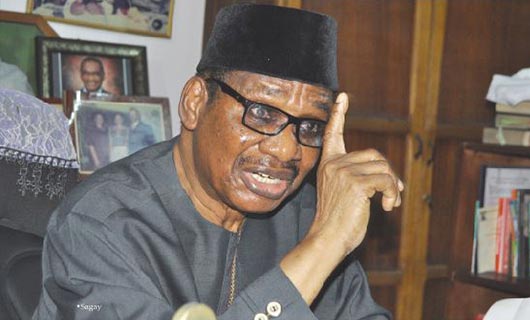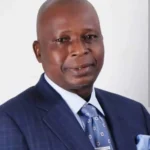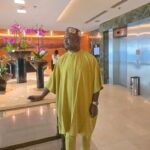The recent appointment of new judges of the FCT High Court by the National Judicial Council has continued to elicit controversy.
The NJC had on April 26 named 70 new judges, 33 of them for the FCT High Court.
Chairman, Presidential Advisory Committee Against Corruption, Professor Itsay Sagay, had on Wednesday alleged that “sons and daughters of retired and serving Judges and Justices are being nominated for appointment into sensitive judicial positions at the expense of more qualified candidates without privileged support and backing.”
- FCT H/Court Appointment: ’22 candidates failed to meet requirements’
- Kalu: PACAC accuses Supreme Court of “reliance on technicalities”
Sagay said the trend, which placed emphasis on favoritism/nepotism over competence, was a pathway to future judicial malfeasance and miscarriage of justice.
He urged Nigerians and other stakeholders in the fight against corruption to halt this malpractice now so as to save the nation from grave deterioration in our judicial system.
Also, Professor Chidi Odinkalu, Silas Joseph Onu and members of the Open Bar Initiative had in a petition to President Muhammadu Buhari dated May 6, 2020, alleged that the appointments violated the NJC Rules and Procedures; High Court of the FCT (Number of Judges) Act, 2003 and “is fraught with judicial insider dealing which risks turning the judiciary into an instrument for advancing narrow personal interests and patronage.”
But a representative of the Nigerian Bar Association at the NJC, Victor Giwa, said the allegations of fraud or non-qualification had not been proved against the candidates.
“In as much as I support that the guidelines should be followed and not laced with favouritism and nepotism, you cannot lay those allegations except you have proof,” he said.
Meanwhile, two lawyers, Tochukwu Ohazuruike and the chairman of the Capital Bar of the NBA, Clement Chukwuemeka Ugo, have filed a suit before the Federal High Court seeking to declare the petition challenging the confirmation of the 33 judges of the FCT High Court as null and void having breached sections 153(1i), 158, 255(2b), 256(2)&(3), items 20, 21(ii) of Part 1 of the Third Schedule to the Nigerian Constitution, 1999.
They described the petition to the president was “mendacious, mischievous, malicious, divisive, calculated to denigrate the integrity of the 3rd Defendant, illegal, unlawful, unconstitutional and therefore null and void and of no effect whatsoever.”

 Join Daily Trust WhatsApp Community For Quick Access To News and Happenings Around You.
Join Daily Trust WhatsApp Community For Quick Access To News and Happenings Around You.


